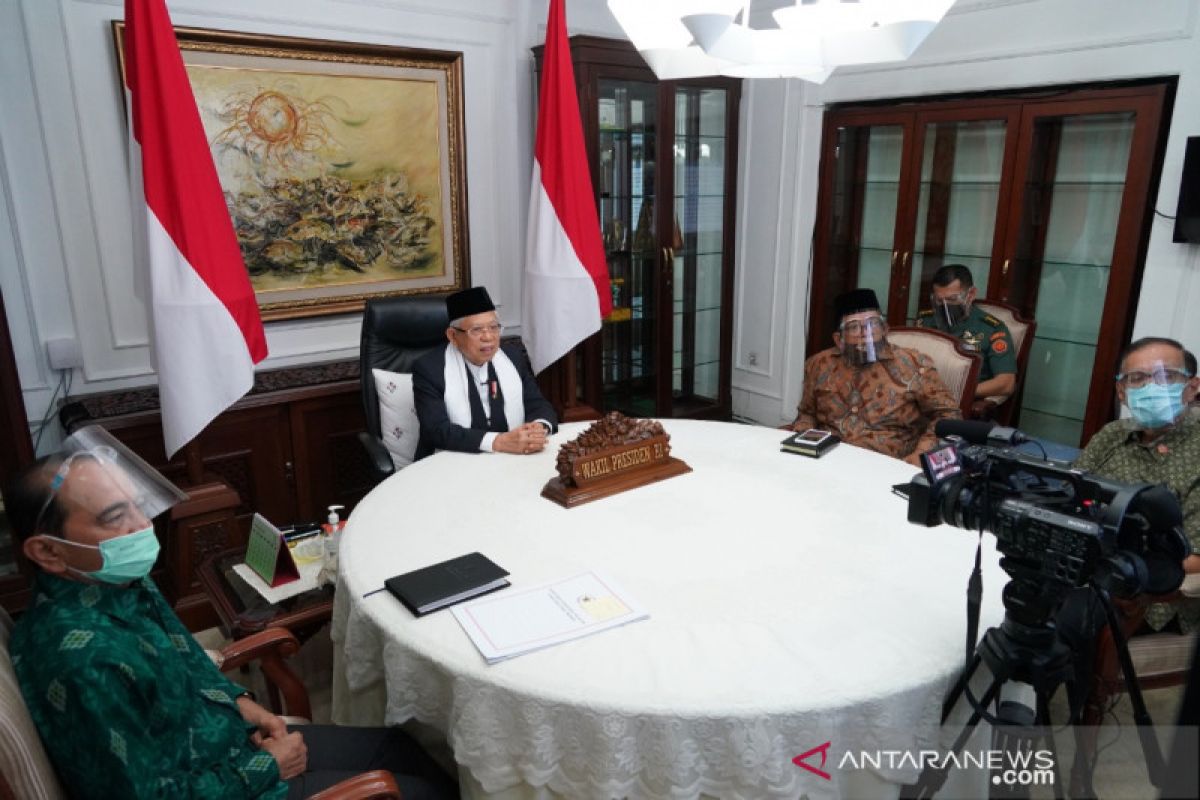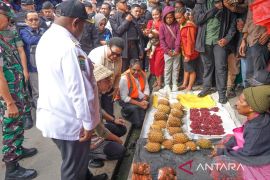Public health and economic sustainability must run in balance like the gas and brake pedals in a car, remarked Ma'ruf while opening the Nahdlatul Ulama (NU) Grand Conference (Konbes) virtually from Jakarta on Wednesday.
"In fact, for example, (if) a priority scale is taken, which should take precedence in an emergency? The answer is clear and emphatic -- prioritizing to save lives," he stressed.
Safeguarding human survival must be the main focus of leaders in the current pandemic era, he said.
“(Leaders must work on) Prioritizing the prevention of the greater dangers than the smaller ones," he added.
He then lauded the decision of the Nahdlatul Ulama (PBNU) executive board to postpone the 34th NU Congress, which was supposed to be held in October this year.
"On that basis (humanity, ed.), the decision to postpone the implementation of the 34th Congress of Nahdlatul Ulama is the right decision. I appreciate the PBNU's attitude and considerations which are based on the basic objectives of Islamic sharia," he said.
NU's 34th Congress has been postponed on account of the uncontrolled rate of COVID-19 transmission in Indonesia.
At the NU Conference, Ma'ruf Amin also praised PBNU and all regional branch administrators who have helped support the government's policies on dealing with COVID-19.
Data from the Task Force for COVID-19 Response has shown that as many as 24,400 COVID-19 infections, or 63.46 percent of the total cases, in Jakarta have been spread by patients visiting hospitals.
This has made hospital patients the largest coronavirus cluster in the capital city, said officials.
“Based on the cluster data in Jakarta, while Jakarta implemented a transitional period of the large scale social distancing (PSBB) measure from June 4 to Sept 12, 2020, most of the virus transmission originated from patients visiting hospitals,” Dr. Dewi Nur Aisyah, head of the task force's data and information technology section, revealed at a press conference at Graha BNPB, here earlier on Wednesday.
The second largest cluster in Jakarta has been the cluster of patients in the community, who have accounted for 15,133 cases, or 39.36 percent of the total COVID-19 cases in the capital city.
"So, if one person tests positive, it should be traced who he has made contact with so far. The family cluster is included in this category," she said.
Meanwhile, the third cluster that has contributed the highest number of COVID-19 cases in Jakarta is the office cluster.
"Offices are in the third rank of the highest distribution sources, with a total of 3,194 cases, or about 8.31 percent of the total cases in Jakarta," she said.
Related news: Public abides by health protocols as exhausted health workers struggle
Related news: Public health services in Timika remain unaffected amid pandemic
Translator: Fransiska N, Azis Kurmala
Editor: Rahmad Nasution
Copyright © ANTARA 2020












